AMPLIFYING PATIENT VOICES

2022 Impact Report




Excellent kidney health, optimal quality of life for those affected by kidney disease, and a cure.
The Kidney Foundation of Canada is the leading charity committed to eliminating the burden of kidney disease through:
Funding and stimulating innovative research for better prevention, treatments and a cure; Providing education and support to prevent kidney disease in those at risk and empower those with kidney disease to optimize their health status;
Advocating for improved access to high quality health care;
Increasing public awareness and commitment to advancing kidney health and organ donation.
 Kidney Walk participants wrote encouraging postcards to dialysis patients.
COVER:
Tanya (left) and Faye Work (right) share their excitement days before their life‐saving kidney transplant surgery.
PHOTO CREDIT: MICHELLE HOFER
Kidney Walk participants wrote encouraging postcards to dialysis patients.
COVER:
Tanya (left) and Faye Work (right) share their excitement days before their life‐saving kidney transplant surgery.
PHOTO CREDIT: MICHELLE HOFER
People affected by kidney disease are at the heart of all we do at The Kidney Foundation, and ensuring that patients get the treatment and services they need is a key focus of our new strategic plan, which started in 2022.
While kidney disease is one of the leading causes of death in Canada, most Canadians don’t know much about these vital organs or if they are at risk of this serious disease. According to an Ipsos poll we conducted in 2022, almost 60% of Canadians don’t know anything about kidney disease. At the same time, kidney disease is on the rise.
In 2022, The Kidney Foundation approved over $1.6 million to raise awareness of kidney disease and to push for improved recognition of kidney disease as a critical public health issue. Canada needs a national chronic kidney disease framework to transform kidney disease care. Highlights of our recent advocacy efforts include ensuring Canadians have access to new treatments by providing patient impact statements to voice their needs to government. In addition, thanks to the collaborative efforts of both Alberta Branches with the ORGANization, the provincial legislature passed a mandatory referral bill to ensure all organs eligible for deceased donation are referred to transplant specialists.
The Foundation has broadened its leadership role in the area of organ donation and transplantation in Canada by becoming a Living Donor Circle of Excellence partner, challenging other employers to adopt a wage replacement policy for employees who choose to be living donors.
Furthermore, The Kidney Foundation continues to provide educational resources and services like peer support and emergency financial assistance to help ease the burden. In 2022, over 2,400 people accessed our peer support program, and over 4,300 received emergency financial assistance, totalling over $866,000.
Our investment in research also grew in 2022, with over $4.3 million invested to increase knowledge and improve outcomes for patients. Investments include our KRESCENT training program for kidney scientists, which recently received a CIHR training grant, as well as investments into clinical trials, such as SUGARNSALT, and Can‐SOLVE CKD, a patient‐centred research network that is now Canada’s largest ever kidney research initiative. Since 1964, The Kidney Foundation has invested $135 million into kidney research.
The vital work we do would not be possible without the generosity of our donors and volunteers, and we are extremely grateful for your dedication and support. Thank you!
IN 2022, OVER 2,400 PEOPLE ACCESSED OUR PEER SUPPORT PROGRAM, AND OVER 4,300 RE CEIVED EMERGENCY FINANCIAL ASSISTANCE, TOTALLING OVER $866,000.
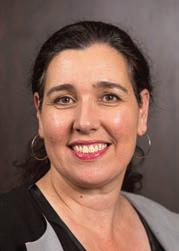
 ELIZABETH MYLES National Executive Director
ELIZABETH MYLES National Executive Director
After a year of testing and preparation, Tanya Work, an employee of The Kidney Foundation of Canada, donated one of her kidneys to her mother Faye in a life‐saving transplant surgery in February. Days before the surgery, Tanya and Faye shared their experience and feelings with us.
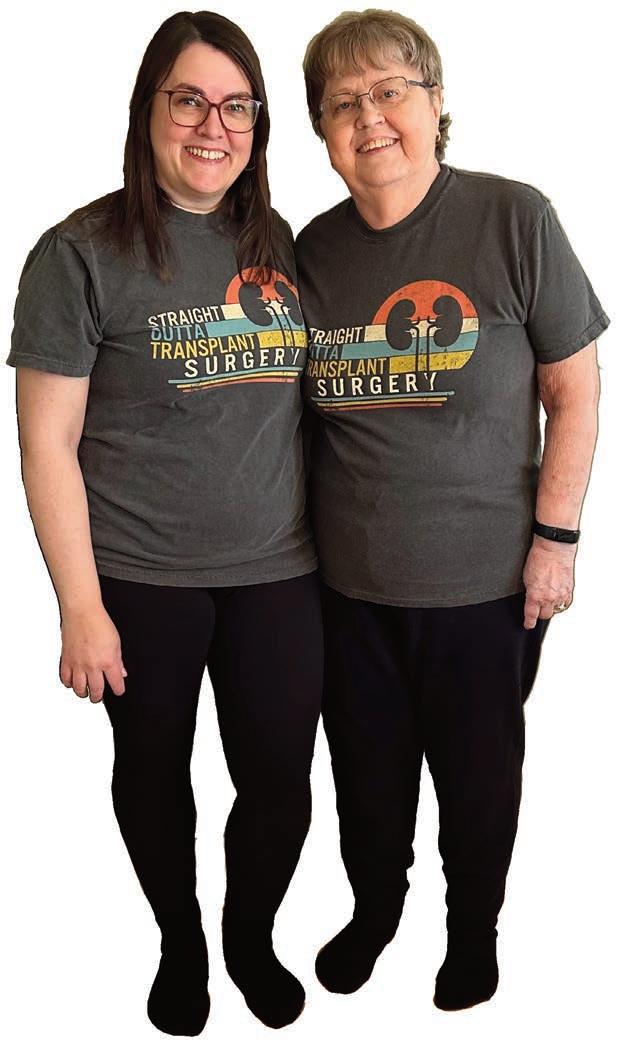
The process began in January of 2022 when Tanya contacted the Living Donor Clinic to start the conversation about becoming a donor for her mother. Tanya underwent her first test on February 22, 2022, kicking off a series of further tests and evaluations to ensure that she was a suitable match. “I was officially approved in September, but then mom still had to have a few tests done,” Tanya shared.
It was 47 years ago that Faye discovered she had kidney disease while pregnant with her daughter.
When Tanya first offered the kidney, Faye was apprehensive. However, Tanya was very persistent in convincing Faye to accept. Tanya told Faye, that if she didn’t take her kidney, she’ll give it to somebody else. “So, I couldn’t resist,” said Faye.
Tanya, jokingly added, “Really, she made me and at one point in the whole game, this kidney was already inside her when I was inside her. So, all I’m really doing is giving it back to her. That’s how I’m looking at it.”
After her initial diagnosis, Faye’s kidneys held up for 25 years before she underwent a pre‐emptive kidney transplant which lasted for another 20 and a half years. However, in May of last year, the transplanted kidney started to deteriorate rapidly and, unfortunately, a bowel obstruction caused it to fail entirely.
Faye was put on dialysis about a month later and had been struggling with it ever since. While grateful for the lifesaving treatment, she found dialysis to be a challenging experience that left her very weak and tired.
Not everyone does well on dialysis and for many, a transplant offers the best chance at a healthier life. Giving her mom a kidney holds immense significance for Tanya. The last few years have been tough on the whole family. This transplant will not only improve Faye’s quality of life but also allow their family to get back to living a more normal life which includes doing things like travelling again, which is something they haven’t been able to do for a while.
The gesture holds even more meaning for Tanya because when her mom was first diagnosed, they didn’t think she would live to see Tanya graduate. Now, Tanya’s daughter is graduating in a month, and her mom will be able to witness it. This symbolic moment made the decision to give her mom her kidney even more special.
“I know what it means to have a kidney transplant and how wonderful it is and how much it improves your health,” said Faye.
Donating a kidney is the most common type of living organ donation and a living kidney transplant is the most successful of all transplant procedures. The length of time the recipient waits for an organ to become available is shorter when the organ comes from a living donor. In Canada, the median wait time for a deceased kidney donation is almost 4 years.
For Tanya, The Foundation’s peer support program has also played another critical role in her trans‐plant journey. Tanya never set out to be an expert on the transplant process but when her mom’s kidney transplant began to fail, they began to seek out as much information as they could. Talking to others helped dispel concerns and guide them in their preparations and plans.
“To be able to talk and bond with other kidney donors, other living donors, has just been so incredibly helpful,” she stated “I’m grateful to have that community base of people who have gone through what I’m going through.”
Following the successful transplant surgery, Tanya and Faye are doing well and recovering. Thanks to the dedication and expertise of medical professionals, the support of The Kidney Foundation, and the generosity of Tanya’s donation. They are looking forward to Faye’s granddaughter Molly’s graduation and all the new adventures that await them for many years to come. “I am excited to see mom come back to life…it’s been quite the year,” concluded Tanya.
The Kidney Foundation of Canada’s Living Organ & Tissue Donation Leave Policy financially supports staff like Tanya who choose to be living donors.
“We know just how transformative a kidney transplant can be,” said Elizabeth Myles, The Kidney Foundation’s National Executive Director. “Tanya’s experience is a reminder of the importance of workplace support and flexibility for employees dealing with medical issues.
The Kidney Foundation’s policy has allowed Tanya to focus on her health and family without worrying about the financial impact.”
In 2021, The Kidney Foundation of Canada implemented this top‐up Wage Replacement Policy for Living Organ and Tissue Donation to remove barriers to organ donation by ensuring an employee’s income remains unchanged throughout the process of making a living donation and for up to 15 weeks of recovery.
In addition to this policy, The Kidney Foundation of Canada joined an elite group of organizations and businesses as a member of the American Society of Transplantation’s Living Donor Circle of Excellence and later became a strategic partner on this initiative in October 2022.

“We encourage other Canadian organiza‐tions and companies to explore their own policies and to take a bold step to help those who so altruistically decides to dramatically improve the health of someone through the selfless act of organ donation,” said Ms. Myles. “It is empowering for employees to feel supported throughout the process. From an employer’s point of view, it was relatively low cost and easy to implement.”
The evaluation process to become a living donor involves an in‐depth physical and psychological testing ‐ tests to determine whether a candidate is healthy enough to donate a kidney and whether they are a good match for the potential recipient. The various tests and appointments may require travel and time off work as they meet with members of their healthcare team. While the process can be challenging, it is essential and a testament to the donor’s dedication to the recipient’s health and well‐being.
“There was a fair amount of time I had to take off work. I’m very fortunate to live in the big city where I don’t have to travel too far,” Tanya said. “I’m very grateful that I work at The Kidney Foundation and that they have a policy in place to allow me to take the time off to not only go to the appointments that I’ve gone to over the past year, but also to make
sure that I’m not out any wages while I’m off for the transplant.”
The challenges the Work family faced are not unique. However, not everyone has the support available to make the process happen without the burden or fear of lost wages.
The Kidney Foundation’s policy is an excellent example of how an employer can easily support living organ donation and potentially save lives, reducing the burden of kidney disease on those living with the disease and on the healthcare system.
This type of policy is something Tanya hopes becomes more normalized one day. She encouraged other companies to support their staff who want to become living organ donors. “There’s going to be some people who might hesitate doing it because of finances. And if, as an employer, they can enrich other people’s lives and help potential living donors do what I’m doing and have the freedom to be able to save a life, and improve lives, then I definitely encourage other employers to do the same.”
”We encourage people to find out if their employer has a leave policy,” said Ms. Myles. “If not, you could be the person to ask, ‘why not’?” and invite them to learn more.”
The power of friendship and passion of volunteers who wanted to rally around a friend living with kidney disease has inspired their community over the past 40 years to support The Kidney Foundation with over $1 million.
La Serata Italiana’s success is a testament to the legacy and passion of the late Agostino Monteduro, who was a kidney transplant recipient. Mr. Monteduro was a well‐known and respected member of Ottawa’s Italian community. He rallied doctors and community leaders around a common goal to raise funds for Kidney Foundation programs.
The group’s main fundraising event is a gala, held annually on the first weekend of March. The event is a glamorous, lively affair, with red carpet photos, a five‐course Italian meal, silent and live auctions. The evening’s emotional high point takes place when someone from the community who has received a kidney transplant is honoured – something that has become an annual tradition.
The founder’s influence was crucial in the early days. Anna Monteduro, Mr. Monteduro’s daughter and chair of the current chair of La Serata Italiana recalls that very few people were able to say no to Agostino. In its inception, their focus was on launching the Agostino Monteduro Endowment Fund, the interest of which would help fund Kidney Foundation programs, including summer camp sponsorships, peer support, and education programs.
When Mr. Monteduro passed away in 2010 at the age of 81, the La Serata Italiana team and the community, wanted to honour his legacy by carrying on with his vision to support those affected by kidney disease. A few years later, organizers expanded the focus to include support of kidney research, specifically at the Kidney Research Centre in Ottawa.
Over the years, the La Serata Italiana team has added a second generation of committee members, with many of the original members still active on the board. Today, the annual fundraising gala is attended by more than 300 people. The Kidney Foundation is grateful for the committee’s support. This year, the team
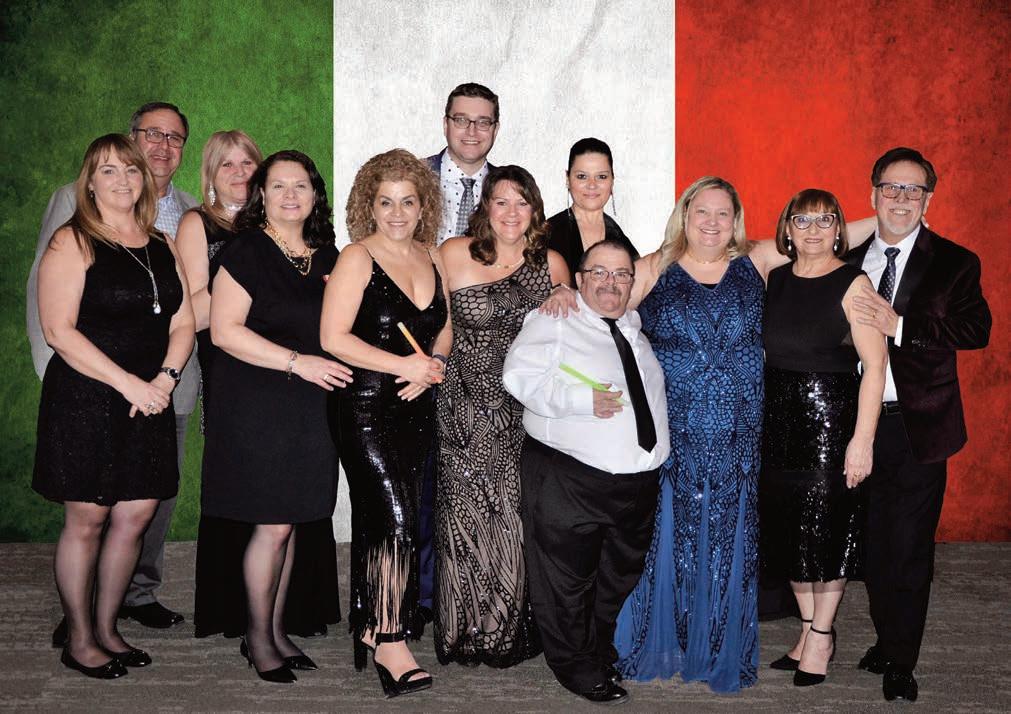
was recognized with an Outstanding Philanthropic Group award, bestowed by the Association of Fundraising Professionals (AFP) Ottawa Chapter; they were nominated for the award by local Kidney Foundation employees.
“The volunteers of La Serata Italiana are incredible people,” said Jennifer Heale, Senior Regional Manager of Community and Fund Development for The Kidney Foundation’s Ontario Branch. “Their commitment to this annual event and to The Kidney Foundation, and their ongoing celebration of Agostino’s vision and passion is inspiring. They are a very special group of people and we are so grateful to them for all they continue to do for us.”

The cost of medication can be a significant burden to people with kidney disease. A 2018 report from The Kidney Foundation of Canada found that 19% of survey respondents had missed purchasing medication in the previous six months due to a financial barrier. The average reported cost of prescription drugs for kidney patients was $756 per year, and that cost rose to $1,083 when non‐prescription medications were taken into account.
The Kidney Foundation of Canada Is working to make sure that people with kidney disease have access to the medications they need. One way we do that is by participating in Common Drug Reviews through CADTH (Canada’s Drug and Health Technology Agency), which evaluates drugs based on clinical, economic, and patient evidence and makes recommendations as to which medications should be included in federal, provincial and territorial drug plans (except in Quebec, where the review process is managed by INESSS, the Institut national d’excellence en santé et en services sociaux).
The patient input we provide as part of Common Drug Reviews comes directly from patients and caregivers who have responded to a Kidney Foundation survey on their lived experience with kidney disease, current treatments, and their experience, if any, with the particular drug being evaluated. The Foundation then submits a summary report comprising feedback from the kidney community perspective for consideration.
“It’s important that we have the opportunity to put our voices forward when decisions are being made about the medications we have access to,” said Lisa Huhn, kidney patient. “These groups need to
understand how kidney disease affects patients and their families, and what it means to us to get the treatments we need.”
In 2022 The Kidney Foundation participated in seven CADTH drug reimbursement reviews, and several more in Quebec, BC, and Ontario. Two of these reviews involved collaborations with other patient groups amplifying the voices of those with lived experience.
In December 2022 The Foundation also submitted feedback to the Patented Medicine Prices Review Board (PMPRB), which is an independent body established by the Government of Canada to ensure that the prices of patented medicines sold in Canada are not excessive. The Kidney Foundation advocated for a delay in the implementation of updates to PRPMB guidelines to ensure meaningful engagement with patients and equitable access to clinical trials and new drugs still under patent.
IT’S IMPORTANT THAT WE HAVE THE OPPORTUNITY TO PUT OUR VOICES FORWARD WHEN DECISIONS ARE BEING MADE ABOUT THE MEDICATIONS WE HAVE ACCESS TO.
“Advocating for equitable access to medications is an important part of the work we do as a Foundation,” said Lydia Lauder, National Director of Programs & Public Policy. “The experiences that patients and caregivers share with us as part of the drug review process represent an important and valuable opportunity for their voices to be heard.”
The Kidney Foundation’s mission is to eliminate the burden of kidney disease. We are committed to making sure that the voices of people affected by kidney disease are front and centre in any conversations and decisions about medications that could improve their lives.
and transplantation systems must have processes in place to avoid missed donor opportunities. Mandatory referral is a successful evidence‐based policy in other jurisdictions because it supports the timely identification, referral, and assessment of a potential donor.
While it is important to register to become an organ donor, it is equally important to discuss your wishes with your family, noted Ms. de la Fuente. “Families have the final say on whether their loved one becomes an organ donor, so families must have the kitchen table talk and make their wishes known. We need to increase awareness so that during a family’s most difficult moment, they are aware of their loved ones’ wishes and will do what they can to honour those wishes.”
or over five years, The Kidney Foundation Alberta branches have collaborated with The Alberta ORGANization Group, and The Alberta Transplant Institute, along with healthcare professionals, patients, business leaders and other like‐minded organizations to ask for system changes to positively impact the lives of Albertans in relation to organ and tissue donation.
The advocacy efforts of The Kidney Foundation supported the passage of Bill 205, the Organ and Tissue Donation (Mandatory Referral) Amendment Act, 2022. The Bill, sponsored by MLA R.J. Sigurdson, will require healthcare professionals to report all imminent deaths to Alberta’s organ procurement organization. Mandatory referral is a current best practice among global leaders in deceased donation rates and closes a significant gap in Alberta’s deceased donation and transplantation system.

Only 1‐2% of all deaths in Canada have the potential to become organ or tissue donors. Donation is complex, and because only a tiny percentage of individuals have the potential to become a donor, all organ and tissue
Organ transplantation is the most clinically and cost‐effective treatment for organ failure. For patients waiting on a transplant list or ineligible for a transplant, their health journey is often lengthy and costly, and it impacts their physical, emotional, mental, and financial state.
In 2021, 403 transplants were performed in Alberta, yet 509 remained on the transplant list. Regrettably, 57 Albertans died while waiting for a transplant, and 62 were taken off the list.
“The official numbers do not reflect reality,” said Flavia de la Fuente, Executive Director, Northern Alberta & The Territories Branch. “Organ failure is a public health crisis as thousands are not listed on the transplant list for various reasons. This is good news for them also, as many of them hope to get on the waitlist. Despite previous measures, more work must be done to improve our system. Patients on a transplant waitlist should feel a little more hopeful because Alberta’s system is being modernized. We will now have an evidence‐based policy that works. But this is only a first step, and we look forward to working with the Government of Alberta to continually improve our system.”
The Kidney Foundation is committed to advocating for improvements to the organ and tissue donation and transplantation system, to creating a culture of organ donation, and to increasing public awareness across Canada. An example of this commitment on a national scale is the foundation’s involvement in the My Transplant Experience project. Its recommendations were endorsed by the Organ Donation Transplant Collaborative and shared with stakeholders across Canada during key meetings and conferences in 2022. These include national patient forums hosted by the Canadian Donation and Transplantation Research Program and The Kidney Foundation, as well as multiple presentations to federal and provincial/territorial governments and organizations, including Health Canada and the Organ Donation and Transplantation Provincial Territorial Blood Liaison Committee. The project has also been the subject of multiple academic posters and presentations at conferences hosted by the Canadian Society of Transplantation, the Canadian Society of Nephrology, the Canadian Association of Nephrology Nurses and Technologists, and others.
Thanks to generous donor support, The Kidney Foundation’s program investments help to assure improved kidney health for all, greater supports and services for people impacted by kidney disease, and bring us closer to a cure.
2022 KIDNEY WALKS
100 VIRTUAL AND IN-PERSON WALKS HELD INCLUDING KIDNEY MARCH
ONLINE ENGAGEMENT
615,603 WEBSITE VIEWERS

1,301 WEBINAR VIEWS



79,133 SOCIAL MEDIA FOLLOWERS
69,423 NEWSLETTER SUBSCRIBERS
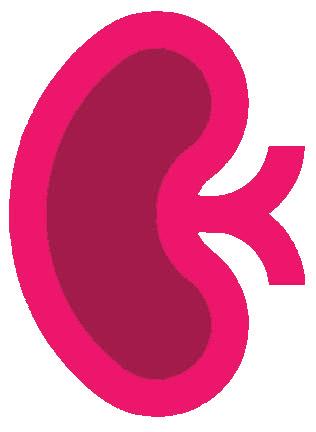
OVER
2,400
PEOPLE ACCESSED PEER SUPPORT
22,000 DONORS
2,300 OVER
OVER PARTICIPANTS
ORGAN DONATION
3,100 PEOPLE WAITING FOR A KIDNEY TRANSPLANT
3 YEARS, 7 MONTHS: MEDIAN WAIT TIME FOR A DECEASED DONOR KIDNEY TRANSPLANT
EDUCATIONAL MATERIALS

22,353 PATIENT HANDBOOKS DISTRIBUTED
21,302 EDUCATIONAL BROCHURES DISTRIBUTED
PEOPLE RECEIVED FINANCIAL ASSISTANCE

$866,000 OVER
4,300 OVER PROVIDED IN FINANCIAL ASSISTANCE
The Kidney Foundation of Canada research program appreciates the dedication and support of the research community, including over 89 experts that collectively volunteered more than 1,700 hours of their time over 2022. These experts include kidney researchers, clinicians, lived experience experts, and partner representatives, who each contributed hours out their busy schedules to help the Foundation reach its research goals.
The work and expertise of the community contributed to reviewing and selecting the best research projects for funding through the Foundation’s three research competitions: The Kidney Health Research Grant, The Allied Health Kidney Research grant and the KRESCENT program.
Researchers and lived experience partners attended webinars and workshops, highlighting the research programs impact and success, providing content and updates to the community, and answering questions and queries about kidney health.
Community members contributed to the KRESCENT training program curriculum, ensuring the next generation of researchers is connected and informed.
Our research council, a team of committed volunteers, continued to provide insight on the research program’s priorities and developments, helping us to ensure we are continuing to provide the best research program for kidney research.
In 2022 our passionate lived experience research partners continued to play a role in the research program by acting as peer reviewers in research competitions, by acting as moderators and presenters of research content, and by participating on research councils. 2022 saw the formalization of the Patient and Community Advisory Network (PCAN) for the KRESCENT program. Thank you to these amazing individuals for sharing their valuable expertise and pertinent viewpoints and helping us to ensure our research continues to represent community driven values and priorities.
Thank you to all our scientific and lived experience experts for your time and hard work!
TOTAL: 1,919 HOURS
If you are a person with lived experience who is interested in participating in the research program and isn’t sure how to get started, please reach out to Leanne Stalker, National Director of Research at leanne.stalker@kidney.ca








DR. JAMES SCHOLEY, recipient of The Kidney Foundation’s prestigious 2022 Medal for Research Excellence, is a Professor of Medicine and Physiology and a Physician Scientist in the Department of Medicine at the University of Toronto. He is also a Physician Scientist at the Toronto General Research Institute and a staff physician in the Division of Nephrology in the Department of Medicine at the University Health Network and Mount Sinai Hospital.
Described as a role model for all those who strive to become a clinician‐scientist, Dr. Scholey‘s research and scientific work, spanning more than four decades, has frequently been published in high‐impact international publications. Additionally, he has received five teaching awards and has continuously received peer‐reviewed funding support since beginning his independent research career.
Dr. Scholey’s research focuses on the mechanisms responsible for the progression of chronic kidney disease with a special interest in diabetic nephropathy and the renin‐angiotensin system, a hormone system that, among other things, regulates blood pressure and fluid balance. His work has been instrumental in establishing a better understanding of kidney fibrosis and his initial contributions to the sex‐specific differences in the renin‐angiotensin system have paved the way for further transformative studies. He also has a longstanding interest in the physiology of human diabetic kidney hyperfiltration and the impact of proteinuria on the progression of glomerulonephritis.
Dr. Scholey has dedicated his work to the direct benefit of patients and the kidney community. Through his own work, as well as a role on the Can‐SOLVE CKD leadership team, Dr. Scholey has helped to develop and support patient‐oriented research.
Dr. Scholey has forged an impressive legacy that extends beyond his many research and scientific achievements. He is a mentor for the next generation of physicians and Ph.D. scientists. He has been very involved in training graduates and
medical trainees, acting in a supervisory role for at least 21 trainees and investing tremendous time individually mentoring his students. Dr. Scholey leads the way by example and believes in sharing resources with his students to set them up for successful careers. His colleagues note that he oftentimes cedes the “senior” author position to more junior investigators who are typically his mentees in recognition of their efforts.
“Dr. Scholey has made many important contributions to kidney research and is a long‐standing leader in the field,” remarked Elizabeth Myles, National Executive Director, The Kidney Foundation of Canada. “His dedication to training and mentorship of young investigators, his patient‐centric approach to ensure patients and families are included, and his extensive, top‐quality research make him a true icon in kidney research.”
“This award has special meaning to me because I am so very grateful for the support that I have received from The Kidney Foundation over the years. The Kidney Foundation has always played a central role in my research program, in many respects as a silent but ever‐present partner. I was awarded a Research Fellowship during my training at Stanford University and I received a Kidney Foundation Scholar‐ship when I returned to Canada to set up my labora‐tory at the University of Toronto (UoT). One of my first operating grants at UoT was also from The Kidney Foundation, and this early support enabled me to launch my research program. Research funding is never secure and there were two points in my career, in the early 1990’s and then again in 2010, when The Kidney Foundation provided critical support to my laboratory enabling me to continue my efforts.
Over the years the Foundation has funded several research fellows in my laboratory, many of whom have gone on to successful independent kidney research careers often eclipsing my own contributions. I am intensely proud of this important multiplier effect, again built on the back of Kidney Foundation support.
Finally, the Foundation has also funded my research team efforts beginning with a New Emerging Team Program partnered with the Canadian Institute of Health Research (CIHR) and continuing on to the Strategy for Patient Oriented Research (SPOR) research network Can‐SOLVE CKD Phase 1 and Phase 2, another partnership between The Kidney Foundation and CIHR. These significant team efforts have also supported research training and the careers of young investigators. When people ask me what the Foundation means to me, I tell them with humility and without exaggeration that my career is indebted to the unwavering support of The Kidney Foundation. The truth is that I have been pretty lucky to have the Foundation ‘in my corner’, and it is difficult for me to express the depth of my gratitude.”
THE KIDNEY FOUNDATION OF CANADA was founded in 1964 with the key objective to raise funds for research. To this day, research remains a core priority. Since it began, The Kidney Foundation research program has invested $135 million for kidney‐related disease research in Canada.
The Foundation prides itself on a stringent, high‐quality research program which supports all areas of kidney research including projects focused on increased education and advocacy efforts, population health and prevention studies, and kidney donation and transplant, as well as projects developing novel treatments, concen‐trating on overall wellness, and finding a cure for kidney disease.
Although much of this research is completed through our “in‐house” research competitions, another arm of our program represents an important aspect which demonstrates the Foundation’s commitment to addressing the need for more knowledge in kidney health and disease: partnership.
Strategic partnership opportunities continue to represent an important priority for Foundation investment, and 2022 showcased several of these partnership opportunities, which saw big investment from both the Foundation and other funding sources.

Strategic partnership allows the Foundation to contribute to the funding and development of larger, more intricate projects and networks which may fall outside the scope of our standard funding opportunities. These partnership opportunities help to leverage donor support, often increasing each donated dollar exponentially, to create lasting impact. In 2022, The Kidney Foundation of Canada research program leveraged over $6 million of support to kidney disease research through partnership.
Some partnerships may be for large collaborative networks, working to change the culture of research, or to approach kidney research with an innovative, wide‐reaching, translational approach.
Kidney care in Canada took a big leap forward in 2016 with the implementation of Can‐SOLVE CKD, a Strategy for Patient‐Oriented Research (SPOR) initiative that The Kidney Foundation of Canada got behind as a partner from the early stages by supporting its application and committing to providing funding and in‐kind support.
Can‐SOLVE CKD is a national partnership of patients, caregivers, health care providers, policy makers, health charities, patient organizations, nephrologists and allied health professionals working together to improve the quality of care for those impacted by kidney disease. As part of the SPOR initiative, the network involves those with lived experience throughout the research process and ensures that lived experience voices and priorities continue to be embedded in all facets.
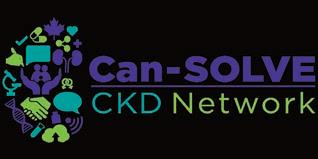
In 2022, The Kidney Foundation committed to continuing our support for this initiative, through the second phase of funding, with an additional $1.9 million contribution. This invest‐ment supported the leverage of $3.75 million from the Canadian Institutes of Health Research (CIHR) as well as over $6 million combined from other partner groups. This support, exceeding $11.8 million, will allow Can‐SOLVE CKD to mobilize innovations from research to implementation over the next five years, and represents a significant investment in the kidney health space.
“The Kidney Foundation of Canada is a proud partner of the Can‐SOLVE CKD initiative,” says Elizabeth Myles, National Executive Director.
“Through its renewed commitment, the Foundation will continue to be an active partner to support the network in improving outcomes for those affected by kidney disease.”
Partnership in this ongoing initiative goes beyond dollars. Our resources and connections will provide valuable implementation reach and sustainability support for Can‐SOLVE CKD, and we are eager to assist the network in transforming results into practice.
“The partnership with The Kidney Foundation has been a cornerstone of our success to date, and I look forward to extending and deepening our collaboration for the benefit of all Canadians living with kidney disease,” says Dr. Adeera Levin, Co‐Principal Investigator of the Can‐SOLVE CKD Network. “We recognize that The Kidney Foundation has tremendous reach across Canada’s kidney community and can play a crucial role in implementing Can‐SOLVE CKD research programs and capacity building initiatives.”
Through the ongoing generosity of our donors offering support to this next phase of Can‐SOLVE CKD, including Leslie and John Pearson and Family, and Otsuka Canada Pharmaceutical Inc., the Foundation will successfully support innovative research projects, the creation of novel training resources, and assist in implementing patient engagement activities that are changing the culture of kidney research in Canada.

apacity building for the future is a key initiative to ensure that Canadian kidney research remains competitive, innovative, and connected. Building a community is a key element to innovation, and partnership and collaboration are often key to success.
In 2022, The Kidney Foundation of Canada was pleased to support the successful funding of the Kidney Research Scientist Core Education and Training Program (KRESCENT) 2.0, lead by Dr. Todd Alexander, Professor of Pediatrics at the University of Alberta. KRESCENT was one of 13 training programs to receive $2.4 million through the Canadian Institutes of Health Research (CIHR)’s Health Research Training Platform (HRTP), in part due to a $2.7 million commitment of The Kidney Foundation of Canada to continue to support and implement the program.
“This investment leverages almost every donor dollar to have potential for greater impact and will help the next generation of Canadian scientists and researchers develop skills for future success,” says Leanne Stalker, National Director of Research. “KRESCENT has been exceptionally successful in its first 16 years, resulting in quantifiable change for the next generation of kidney researchers and the kidney community. It is a demonstration of how partnership and commitment can result in success beyond what would be possible individually. Together, we can build a better future for those affected by kidney disease by ensuring we have well trained, conscientious, prepared Canadian kidney scientists.”
KRESCENT 2.0 will expand and improve upon the successful original program, which was born out of a unique collaboration between The Kidney Foundation of Canada, the Canadian Society of Nephrology and
the CIHR Institute of Nutrition, Metabolism and Diabetes.
Over the past 16 years, the KRESCENT program has built a passionate, successful community of kidney researchers, and brings together a diverse group of partners, mentors, and leaders from multiple jurisdictions, disciplines, and sectors from coast to coast. Together this evolution will increase the number of well‐trained kidney scientists and promote new approaches to improved diagnosis, prevention, treatment and patient experience for Canadians living with kidney disease.
“I’m delighted for the CIHR HRTP funding which will enable us to build upon and expand the tremendously successful KRESCENT program, now continuously supported by The Kidney Foundation and the Canadian Society of Nephrology for almost 20 years,” said Dr. Todd Alexander, nominated principal applicant for KRESCENT. “We look forward to enhancing our training in patient‐oriented research, working more closely with persons with kidney disease and helping to address the disproportionate burden of kidney disease in racialized groups.”
Daring boldly to reinvent the future of kidney health research training is the mission of KRESCENT 2.0, with the vision to encourage and support the next generation of trainees by accelerating collaboration between and across disciplines, fostering the next generation of leaders and honouring and recognizing equity, diversity, and inclusion in all training approaches.

The Kidney Foundation partners yearly with CDTRP to support its Research innovation grant competition. Innovation grants provide seed funding for novel projects focused on transplant and donation, and position investigators to develop their research programs to be competitive with larger competitions.




Our partnership with CIHR supports large research initiatives focused on kidney health. Current partnerships include the End Diabetic Kidney Disease research project, as well as a novel award to support trainees from underrepresented groups in the capacity building program Research Excellence, Diversity, and Independence (REDI) Early Career Transition Award.
The Foundation continues to be committed to excellence both within our grant programs and through partnership and is strategically focused on addressing patient and community driven priority areas with the goal of leading to an improvement in long term health and wellness for those with kidney disease and post kidney transplant.
Education and awareness of kidney disease as a major health concern is an important ongoing focus of the Foundation. Partnerships provide the unique opportunity to shine the light on kidney disease, positioning it in a place of priority against other national health challenges.

While ensuring the generous support of our donors and partners is maximizing its benefit to those affected by kidney disease through leveraging and matching, partnerships help to build community, support innovative ideas and create new collaborations where experts across Canada and the world can come together for the greater benefit of the whole.
We truly can accomplish more together.
ore than 80 per cent of people with kidney disease have high blood pressure, and the two conditions can have a mutually detrimental effect. “Poorly controlled blood pressure can lead to kidney disease, but then kidney disease itself leads to blood pressure problems,” explained Dr. Gregory Hundemer, a nephrologist with the Ottawa Hospital Research Institute.

But what if the opposite also holds true—that bringing one condition under control improves the outcomes of the other or might even prevent it from happening? That overarching question motivates Hundemer’s current research into the role of the hormone aldosterone.
Aldosterone helps to regulate blood pressure by telling the kidneys to hold on to water and salt when needed. However, excessive production of this hormone causes Primary aldosteronism, which can raise blood pressure and damage the kidneys. The condition “leads to disproportionately high rates of kidney disease compared with other forms of hyper‐tension,” said Hundemer.
Treatment exists, but physicians frequently overlook elevated levels of aldosterone as a cause of high blood pressure because of a current “one‐size‐fits‐all” approach to management that prioritizes other causes and forms of treatment. Indeed, only one per cent of people thought to have Primary aldosteronism are diagnosed even though researchers estimate up to 20 per cent of those with high blood pressure have the condition.
Hundemer questions if even slightly elevated hormone levels might cause kidney disease.
To find an answer, he began in 2021 to analyze health information in the CARTaGENE study. The long‐term population‐based study contains health data from thousands of Quebec residents and is one of the largest of its type in the world.
To complete his three‐year analysis of the CARTaGENE database, Hundemer employs proteomics. The technique enables researchers to study our bodies’ small proteins, and he uses it to track aldosterone levels and identify any links these might have to early‐stage kidney disease.
Finding a link could be the first step to adding a new path to kidney disease prevention. Many researchers now estimate that more than half of people with high blood pressure have mild hormone elevations. “It would allow us to target patients early on to prevent kidney disease later,” Hundemer said.
nArticle by Mary Baxter
idney transplants improve the quality of life and survival rates for people with kidney disease. Yet early data from a recent study by Dr. Amanda Vinson suggests that Canadian women with this condition are less likely to obtain transplants than men. Vinson, a nephrologist with Nova Scotia Health and a researcher at the Kidney Research Institute of Nova Scotia (KRINS), says these findings reflect similar ones from other countries. The inequity occurs despite Canadian kidney specialists showing no apparent bias in recommending transplants, at least amongst a group who responded to a survey study she conducted examining this question. That such a gap exists “is not acceptable,” said Vinson. She plans to find out why it is occurring by asking the patients themselves in a qualitative mixed methods study that gets underway in early 2023. “We’re asking the patients, generally speaking, ‘What are your perceptions towards transplant?’ so we can identify if there are differences between men and women about what’s driving patients to want to be on the transplant wait list or be referred for a kidney transplant,” she said. Virtual focus groups involving men and women with kidney disease will launch the three‐year cross‐Canada study. Researchers will use the groups to determine major themes in attitudes toward transplants. In turn, these themes will inform surveys that Vinson plans to distribute to hundreds of people treated at one of the 11 participating kidney care clinics. Analyzing the survey data will be the final phase.
Patients surveyed will be either on dialysis or pre‐emptively referred for a kidney transplant.
“That’s never been done before,” Vinson said, noting previous attitudinal studies in Canada and elsewhere consulted people after they have obtained a transplant.

Study participants will range in age from 18 to 75 years old, come from urban and rural areas, and represent many points along the gender spectrum, all races, and many ethnicities. “The information should be quite rich overall,” Vinson said.
The study finishes in 2025, but Vinson anticipates releasing some results sooner. Kidney care teams need the information as soon as possible to help their patients. “We are obliged to figure out where these barriers are so that we can help ensure equitable access to transplant for everybody, irrespective of gender,” she said. “I feel passionate about this question.”
n Article by Mary Baxterrom the impact on transportation to dialysis to the effect of shutdowns on services, many questions exist about how the COVID‐19 pandemic affected the care and support of people with kidney disease. An interdisciplinary team of researchers plans to shed light on the subject with a two‐year study that begins in 2023.
“Our key aim is to produce an evidence‐informed base of recommendations to think about pandemic preparedness—what are things to consider and plan for ahead of time, so we’re not trying to figure that out in the moment, but rather have some principles guiding that work,” said David Nicholas, a University of Calgary social work professor who specializes in kidney care. Nicholas leads the study.
Other goals include devising recommendations to guide care during the recovery period after the pandemic and evaluating the effectiveness of shifts and innovations in care that emerged during the COVID‐19 pandemic, such as virtual care.
To conduct the study, the team, which includes doctors, social workers, and a post‐doctoral fellow, will work with renal care clinics in Edmonton, Calgary, and London to identify and interview people with kidney disease as well as their family members and friends who support them. “We’re looking at six groups of patients and 10 patients per group,” Nicholas said. Researchers will group participants in age cohorts that stretch from children to older adults.
They will also make special effort to ensure people come from diverse backgrounds.
“It’s important that we hear as wide an array of voices of individuals and their experiences, and the challenges and the lessons learned from the pandemic,” Nicholas explained. Researchers also plan to convene focus groups with healthcare providers to gather insights.
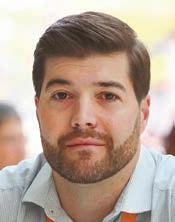
Nicholas emphasized that looking back at the experiences during the pandemic could yield important lessons for the future.
“History tells us that there likely will be future pandemics that we face, so to be prepared, and have key principles to guide us, can be an important resource.”
n Article by Mary Baxterruits and vegetables contain nutritious vitamins, minerals, and fibre and are associated with several health benefits, such as improved cardiovascular health by reducing blood pressure. Kidney care specialists, however, routinely advise people with chronic kidney disease (CKD) to restrict their fruit and vegetable intake. These foods are thought to elevate potassium levels in the blood of about 10 percent of people with CKD, a potentially life‐threatening condition called Hyperkalemia.
Dylan MacKay, an assistant professor at the University of Manitoba who specializes in nutrition and chronic disease, questions whether high potassium levels in fruit and vegetables cause high potassium levels in the blood of people with CKD. “There are not any randomized control trials that show eating high potassium fruit and vegetables leads to measurable changes in blood potassium levels,” he explained. And many who experience higher levels also take medications that can increase potassium levels in the blood, such as diuretics.
With the support of a Kidney Health Research Grant, MacKay and his colleagues at Winnipeg’s Seven Oaks General Hospital and Health Sciences Centre Winnipeg are seeking answers by conducting a random cross‐over trial involving 30 participants with CKD. During the 16‐week trial, the participants will eat fruits and vegetables with different potassium levels. Half of the group will begin with foods featuring high potassium levels and then switch to those with lower levels; the other half will reverse the order of consumption. Meanwhile, researchers will closely monitor the participants’ blood levels of potassium.
If the researchers discover a link, their finding will substantiate the dietary restrictions. But if no link exists, people with CKD could eat these healthful foods without worry. No link would also allow MacKay and his colleagues to explore using fruits and vegetables to prevent another life‐threatening condition called metabolic acidosis—the build‐up of acid in the blood of those with later‐stage kidney disease.
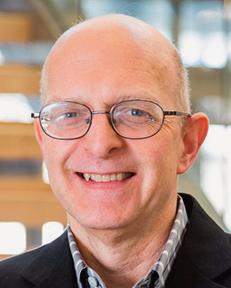
Regardless of the trial’s outcome, MacKay is satisfied with its value for people living with kidney disease. “Restricting diets is quite a burden,” he noted. “We want to make sure that when people have to restrict their diet, it’s based on good evidence, and they are getting a benefit.”
n Article by Mary Baxter101

GRANT ■ Quality of life ■ Renal failure ■ Screening & prevention of renal disease ■ Transplantation ■ Urology ■ Water, salt and calcium handling by the kidney
THEMES INCLUDE:


51 Kidney Health Research Grants 9 Allied Health Kidney Awards
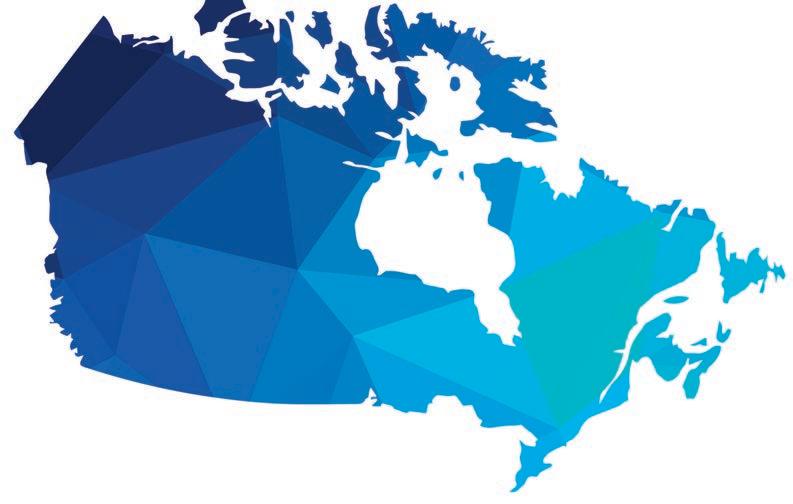


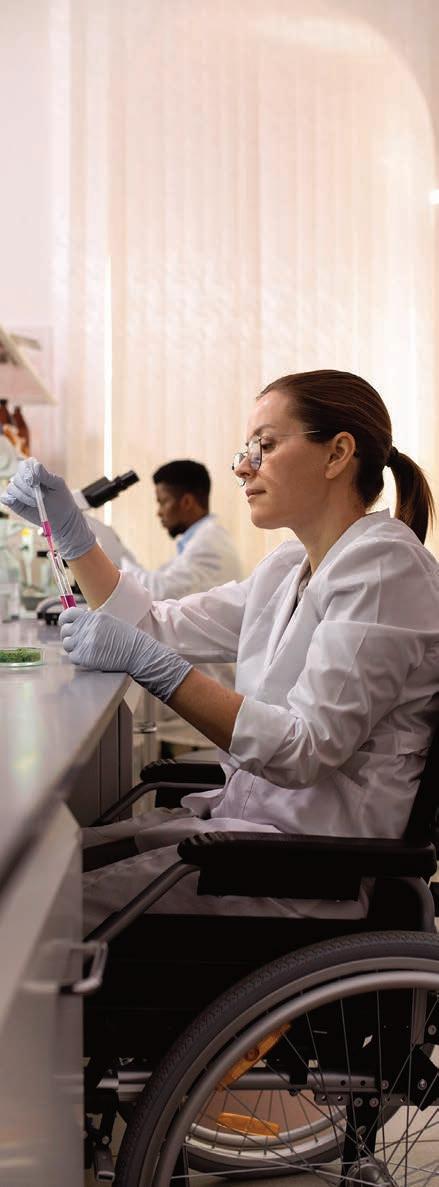
DYLAN BURGER
Ottawa Hospital Research Institute, ON 2022‐2024: $99,180
PROJECT TITLE: Role of neutrophil extracellular traps in diabetic kidney disease
CATEGORY: Diabetes
SANDRA DUMANSKI
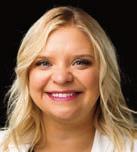
Co‐Applicants: Amy Metcalfe, Kara Nerenberg, Shu Foong, Sofia Bano Ahmed, Todd Anderson University of Calgary, AB 2022‐2025: $149,747
PROJECT TITLE: Reproductive hormones and cardiovascular risk in males with kidney disease
CATEGORY: Hypertension / Patient care / Predictive biomarkers
LAKSHMAN GUNARATNAM
Western University, ON 2022‐2024: $100,000
PROJECT TITLE: KIM‐1‐mediated suppression of renal cell carcinoma

CATEGORY: Cancer / Urology / Kidney biology
ZIV HAREL and JOEL RAY
Co‐Applicants: Maria P. Velez, Natalie Dayan St. Michael’s Hospital, ON 2022‐2024: $97,773
PROJECT TITLE: Fertility treatment and pregnancy complications in women with chronic kidney disease

CATEGORY: Population health
ANDREY CYBULSKY
The Research Institute of the McGill University Health Centre, QC 2022‐2024: $100,000
PROJECT TITLE: Protein kinase SLK in the kidney
CATEGORY: Glomerulonephritis / Kidney biology
NICOLETTA ELIOPOULOS
Jewish General Hospital / Lady Davis Institute, QC 2022‐2024: $100,000
PROJECT TITLE: Treatment of renal cell carcinoma using gene‐modified mesenchymal stem cells
CATEGORY: Cancer / Genetics
INDRA GUPTA
The Research Institute of the McGill University Health Centre, QC 2022‐2024: $100,000
PROJECT TITLE: Establishing efficacy of a claudin‐based treatment for kidney stones


CATEGORY: Urology / Water, salt and calcium handling by the kidney / Patient care
MARIE-JOSÉE HÉBERT
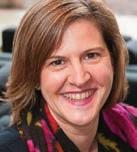
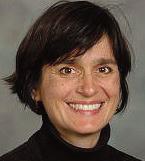
Centre Hospitalier de l’Université de Montréal, QC 2022‐2024: $100,000
PROJECT TITLE: Apoptotic exosomes as drivers of renal inflammation and dysfunction
CATEGORY: Predictive biomarkers / Transplantation / Renal failure
RICHARD HÉBERT
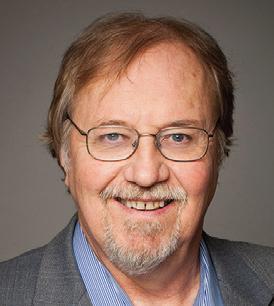
University of Ottawa, ON 2022‐2024: $100,000
PROJECT TITLE:
The effects of SGLT2 inhibition on renal
PGE2 mediated transport in diabetes
CATEGORY:
Diabetes / Water, salt and calcium handling by the kidney
THOMAS MAVRAKANAS

Co‐Applicants:
Abhinav Sharma, Michael Tsoukas, Rita Suri
The Research Institute of the McGill University Health Centre, QC 2022‐2025: $150,000
PROJECT TITLE:
Safety and efficacy of SGLT‐2 inhibitors in patients with advanced CKD
CATEGORY: Dialysis / Patient care
TOMOKO TAKANO

Co‐Applicant:
Ciriaco A. Piccirillo
The Research Institute of the McGill University Health Centre, QC 2022‐2025: $100,000
PROJECT TITLE: A novel mouse model of MCD driven by podocyte autoantigen and T/B crosstalk
CATEGORY: Glomerulonephritis / Kidney biology
AMANDA VINSON
Co‐Applicants: Beth Foster, Bhanu Prasad, Brendan Barrett, Clara Bohm, Isabelle Éthier, Karthik Tennankore, Marie‐Chantal Fortin Nova Scotia Health Authority, NS 2022‐2025: $97,467
PROJECT TITLE: Gender‐based barriers to referral for kidney transplantation in Canada
CATEGORY: Transplantation / Health policy Priority announcement (research in health equity)


JOAN KREPINSKY
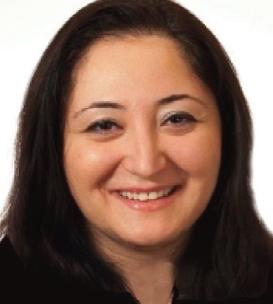
Co‐Applicants:
Gregory Steinberg, Jackie
Trink, Matthew Lanktree
McMaster University, ON 2022‐2024: $100,000
PROJECT TITLE: Investigating ATP citrate lyase (ACLY) in chronic kidney disease
CATEGORY:
Diabetes / Kidney biology / Renal failure
RUTH SAPIR-PICHHADZE
Co‐Applicants:
Giada Sebastiani, Kaberi
Dasgupta, Nicolas Fernandez, Sara Wing, Yi Yang
The Research Institute of the McGill University Health Centre, QC 2022‐2024: $99,993
PROJECT TITLE: Non‐alcoholic fatty liver disease and kidney transplant outcomes
CATEGORY:
Transplantation / Predictive biomarkers / Screening & prevention of renal disease
XIUFEN ZHENG
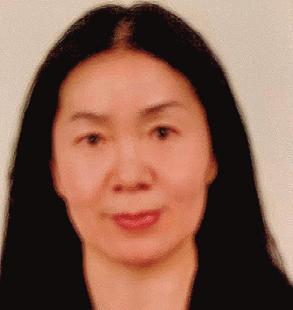
Co‐Applicant: Adam Greasley Western University, ON 2022‐2024: $100,000
PROJECT TITLE: The impact of circular RNA MAP2K2 on immune rejection in kidney transplantation
CATEGORY: Transplantation
TONY KIANG
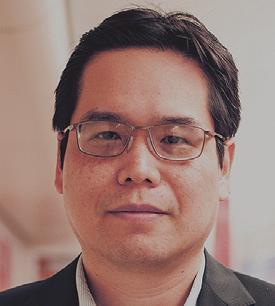
Co‐Applicants: James Lan, Sita Gourishankar
University of Alberta, AB 2022‐2024: $100,000
PROJECT TITLE: Effects of prednisone avoidance or tapering on mycophenolate exposure in adult kidney transplant patients
CATEGORY: Transplantation
DAVID NICHOLAS
Co‐Applicants: Andrew Mantulak, Marcello Tonelli, R. Todd Alexander, Rosslynn Zulla
University of Calgary, AB 2022‐2024: $100,000
PROJECT TITLE: Examining the impact of the COVID‐19 pandemic on chronic kidney disease patients, their family caregivers and renal care providers: Towards optimal patient care in a pandemic
CATEGORY: Patient care / Quality of life / Health policy
VICTORIA RIEHL-TONN
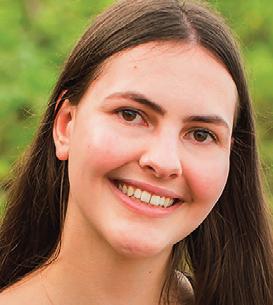
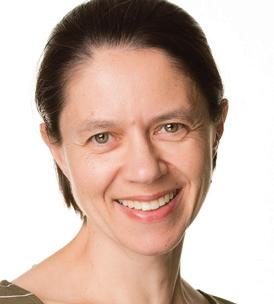
Supervisor:
Sofia Ahmed
University of Calgary, AB 2022‐2023: $5,000
PROJECT TITLE: Sex, gender, and quality of life in patients initiating hemodialysis
CATEGORY: Nursing

RAMI AL BATRAN
Université de Montréal, QC
2022‐2025: $198,783
Infrastructure: $25,000
PROJECT TITLE:
Investigating the role of ketone body metabolism in diabetic kidney disease
CATEGORY:
Screening & prevention of renal disease
In partnership with the Fonds de recherche du QC –Société et culture (FRQSC) and The Kidney Foundation of Canada
MARK CANNEY
Ottawa Hospital Research Institute, ON 2022‐2025: $210,000
Infrastructure: $25,000
PROJECT TITLE: Improving cardiovascular risk stratification in glomerular disease
CATEGORY: Glomerulonephritis
In partnership with the Canadian Institute of Health Research and The Kidney Foundation of Canada
ROBERT MYETTE
Supervisors: Dylan Burger, Christopher Kennedy Ottawa Hospital Research Institute, ON 2022‐2025: $195,000


PROJECT TITLE: Molecular mechanisms of childhood nephrotic syndrome
CATEGORY: Kidney biology
CAROL WANG Supervisor: Amit Garg London Health Sciences Centre Research Inc. (Lawson Health Research Institute), ON 2022‐2025: $65,000 (additional external support)



PROJECT TITLE: Pregnancy outcomes among living kidney donors
CATEGORY: Organ donation
SHAIFALI SANDAL
Co‐Applicants: Peter Nugus, Ann Bugeja, Amanda Vinson, Julie Ho, Marie‐Chantal Fortin The Research Institute of the McGill University Health Centre, QC 2022‐2023: $30,000
PROJECT TITLE: Experiencing graft failure and exploring re‐transplantation: a patient perspective
CATEGORY: Transplantation / Donation
SUNITA SINGH

Co‐Applicants: David Cherney, Mamatha Bhat, Bruce Perkins, Vikas Sridhar University Health Network, ON 2022‐2023: $30,000
PROJECT TITLE: The efficacy, mechanisms and safety of SGLT2i and GLP1RA combination therapy in kidney transplant recipients: The HALLMARK study
CATEGORY: Transplantation / Donation
JANINE FARRAGHER
University of Toronto, ON 2022‐2025: $210,000
Infrastructure: $25,000
PROJECT TITLE:
Investigating pathways to promote life participation in kidney failure
CATEGORY: Quality of life
CAROLINE LAMARCHE

Hôpital Maisonneuve‐Rosemont, QC 2022‐2025: Curriculum only
Infrastructure: $25,000
PROJECT TITLE:
Immunotherapy in nephrology
CATEGORY: Dialysis / Renal failure
AYODELE ODUTAYO

Supervisors: David Cherney, Jacob Udell University Health Network, ON 2022‐2025: Curriculum only (additional external support)

PROJECT TITLE: Expanding the use of SGLT‐2 inhibitors to improve cardiorenal disease
CATEGORY: Chronic kidney disease
KEVIN YAU
Supervisors: Ron Wald, David Cherney University of Toronto, ON 2022‐2025: $195,000
PROJECT TITLE: GLP‐1 receptor agonists in patients receiving maintenance dialysis
CATEGORY: Dialysis
NATIONAL PRESIDENT
Sylvie Charbonneau
NATIONAL IMMEDIATE
PAST PRESIDENT
Greg Robbins
NATIONAL TREASURER
Terry Tomkins
NATIONAL SECRETARY
Elaine Andrews
NATIONAL VICE‐PRESIDENT
Kurtis Krug
NATIONAL VICE‐PRESIDENT
Annora Gilliam
NATIONAL DIRECTOR, ATLANTIC CANADA BRANCH
Vince Andrews
NATIONAL DIRECTOR, BRITISH COLUMBIA AND YUKON BRANCH
Wayde Hayley
NATIONAL DIRECTOR, MANITOBA BRANCH
Donn Pirie
BRITISH COLUMBIA & YUKON BRANCH
4940 Canada Way, Suite 200
Burnaby, BC V5G 4K6
604‐736‐9775 / 1‐800‐567‐8112
Pia Schindler, Executive Director
NORTHERN ALBERTA AND THE TERRITORIES BRANCH
11227 Jasper Avenue, Suite 202
Edmonton, AB T5K 0L5
780‐451‐6900 / 1‐800‐461‐9063
Flavia de la Fuente, Executive Director
SOUTHERN ALBERTA BRANCH 6007 1A Street SW
Calgary, AB T2H 0G5
403‐255‐6108 / 1‐800‐268‐1177
Joyce Van Deurzen, Executive Director
SASKATCHEWAN BRANCH
A3‐116 103 Street East
Saskatoon, SK S7L 6A8
306‐664‐8588 / 1‐888‐664‐8588
Joyce Van Deurzen, Executive Director
NATIONAL DIRECTOR, NORTHERN ALBERTA AND TERRITORIES BRANCH
Terry Tomkins
NATIONAL DIRECTOR, ONTARIO BRANCH
Norm Muirhead
NATIONAL DIRECTOR, QUEBEC BRANCH
Pierre Jetté
MANITOBA BRANCH
209‐2211 McPhillips Street
Winnipeg, MB R2V 3M5
204‐989‐0800 / 204‐989‐0815
Greg Unger, Executive Director
ONTARIO BRANCH
1599 Hurontario Street, Suite 201
Mississauga, ON L5G 4S1
905‐278‐3003 / 1‐800‐387‐4474
Anthony Tirone, Executive Director
NATIONAL DIRECTOR, SASKATCHEWAN BRANCH
Errin Willenborg
NATIONAL DIRECTOR, SOUTHERN ALBERTA BRANCH
Mike Sheppard
NATIONAL DIRECTOR‐AT‐LARGE
Dr. Marie‐José Clermont
NATIONAL DIRECTOR‐AT‐LARGE
Rahil Dattu
NATIONAL DIRECTOR‐AT‐LARGE
Kevin Fontaine
NATIONAL DIRECTOR‐AT‐LARGE
Alex Kolodkin
NATIONAL DIRECTOR‐AT‐LARGE
Gilles Levasseur
NATIONAL DIRECTOR‐AT‐LARGE
Trionne Phillips
NATIONAL EXECUTIVE DIRECTOR
Elizabeth Myles
NATIONAL OFFICE 5160 Decarie Blvd., Suite 880
Montreal, QC H3X 2H9
514‐369‐4806
1‐800‐361‐7494
www.kidney.ca
Charitable Registration Number: 10756 7398 RR0001
The Kidney Foundation of Canada’s audited financial statements are available online at www.kidney.ca/about‐us
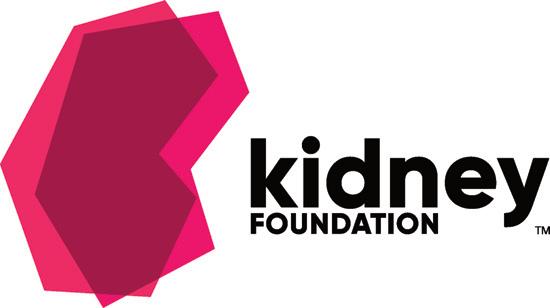
QUEBEC BRANCH
5160 Decarie Blvd., Suite 880
Montreal, QC H3X 2H9
514‐938‐4515 / 1‐800‐565‐4515
Francine Labelle, Executive Director
ATLANTIC CANADA BRANCH
PO Box 13381
St. John’s, NL A1B 4B7
1‐800‐361‐7494